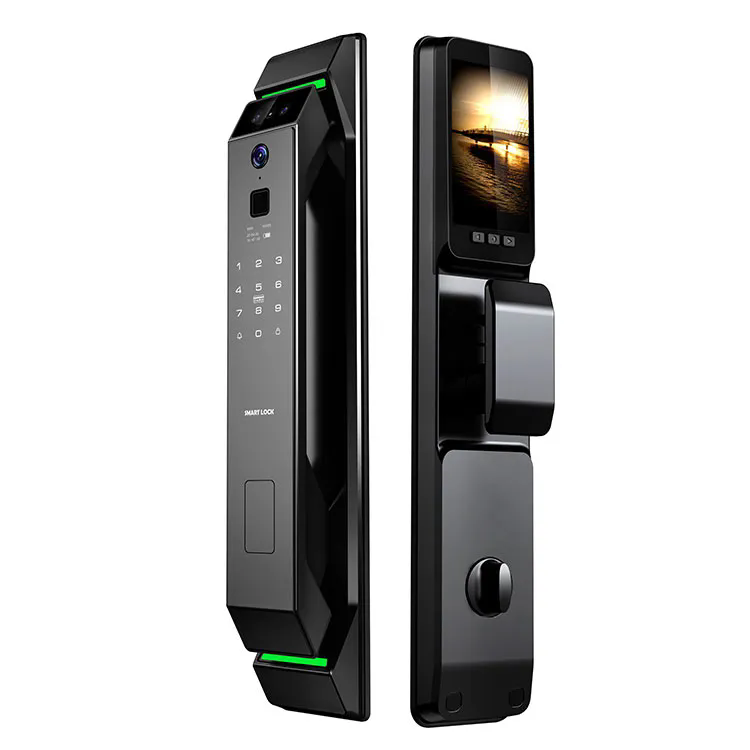What Should You Look for When Choosing an Entrance Door Lock?
2024-11-12
Your entrance door lock is the first line of defense for your home or business, providing security, peace of mind, and convenience. But with a wide variety of door locks available, how can you select the right one? Let’s explore the essential factors to consider when choosing the best entrance door lock for your needs.
1. How Secure Is the Lock?
Security should be the primary consideration when choosing an entrance door lock. Locks are often rated by their level of security, typically graded by standards such as ANSI (American National Standards Institute) or BHMA (Builders Hardware Manufacturers Association) ratings, with Grade 1 being the highest level of security. Grade 1 locks are often used for commercial settings but are ideal for residential use if you want the best security. High-security features like anti-pick pins, drill-resistant components, and reinforced strike plates can also add layers of protection.
2. What Type of Lock Do You Need?
There are different types of locks available, each with its own advantages:
- Deadbolts are among the most secure options, offering a high level of protection due to their extended bolt mechanism.
- Keyless or smart locks offer convenience with PIN codes, smartphone access, or biometrics, eliminating the need for physical keys.
- Mortise locks are known for their durability and are commonly found in commercial buildings, though they’re also suitable for homes.
- Knob or lever locks are generally less secure on their own and are best used in conjunction with a deadbolt.
Your choice should depend on the security level you need and the convenience features that matter most to you.
3. Is a Keyless or Smart Lock Right for You?
With the rise of smart home technology, keyless and smart locks are becoming increasingly popular. These locks offer added convenience, such as remote control through a smartphone app, integration with home automation systems, and temporary access codes for guests. Some smart locks even have biometric options, such as fingerprint recognition. However, smart locks require a power source (batteries or wired power), and you should consider how reliable the connection is in your area if the lock relies on Wi-Fi or Bluetooth.
4. Does the Lock Match Your Door’s Design?
A lock’s aesthetic should match the design and finish of your door. Entrance locks come in various finishes—like brushed nickel, polished brass, oil-rubbed bronze, or matte black—that can complement your door’s style. Choosing a lock that aligns with your door’s design adds a cohesive look to your entryway, making it welcoming without sacrificing security.
5. How Easy Is It to Install and Use?
Ease of installation is another important factor. Some locks can be installed as a DIY project, while others, like mortise locks, might require professional installation. If you prefer a DIY option, look for locks labeled as easy to install, with straightforward instructions and possibly even video tutorials. Additionally, consider ease of use: a lock that is intuitive for daily use, especially for all household members, will be the most functional over time.
6. What Level of Maintenance Does the Lock Require?
A good lock should be low maintenance, providing long-lasting functionality with minimal care. Mechanical locks generally require less upkeep, while smart locks might need occasional software updates and battery replacements. Locks exposed to harsh weather conditions may also need additional maintenance to prevent rust or wear, so ensure the lock’s finish is weather-resistant if it will face outdoor elements.
7. Is There a Backup Access Option?
For smart or electronic locks, a backup access method is essential. Many smart locks offer a traditional key override, allowing you to unlock the door manually in case of a power or connectivity failure. Additionally, some locks provide emergency battery access points to power the lock temporarily. Having a backup solution provides peace of mind, ensuring you won’t be locked out if technology fails.
8. What’s the Budget for Your Entrance Door Lock?
Locks come in a wide price range depending on their type, security features, and technology. Traditional mechanical locks tend to be more affordable, while high-tech smart locks with added features are typically more expensive. Establishing a budget in advance will help you balance your needs for security, functionality, and aesthetics without overspending. Remember, investing in a high-quality entrance lock is ultimately a long-term investment in your security.
In Conclusion
Choosing the right entrance door lock involves balancing security, style, functionality, and budget. Whether you opt for a traditional deadbolt, a high-tech smart lock, or a durable mortise lock, selecting a quality lock tailored to your specific needs will provide peace of mind and lasting protection. By considering these factors, you can confidently choose an entrance door lock that enhances both the security and the look of your property.



